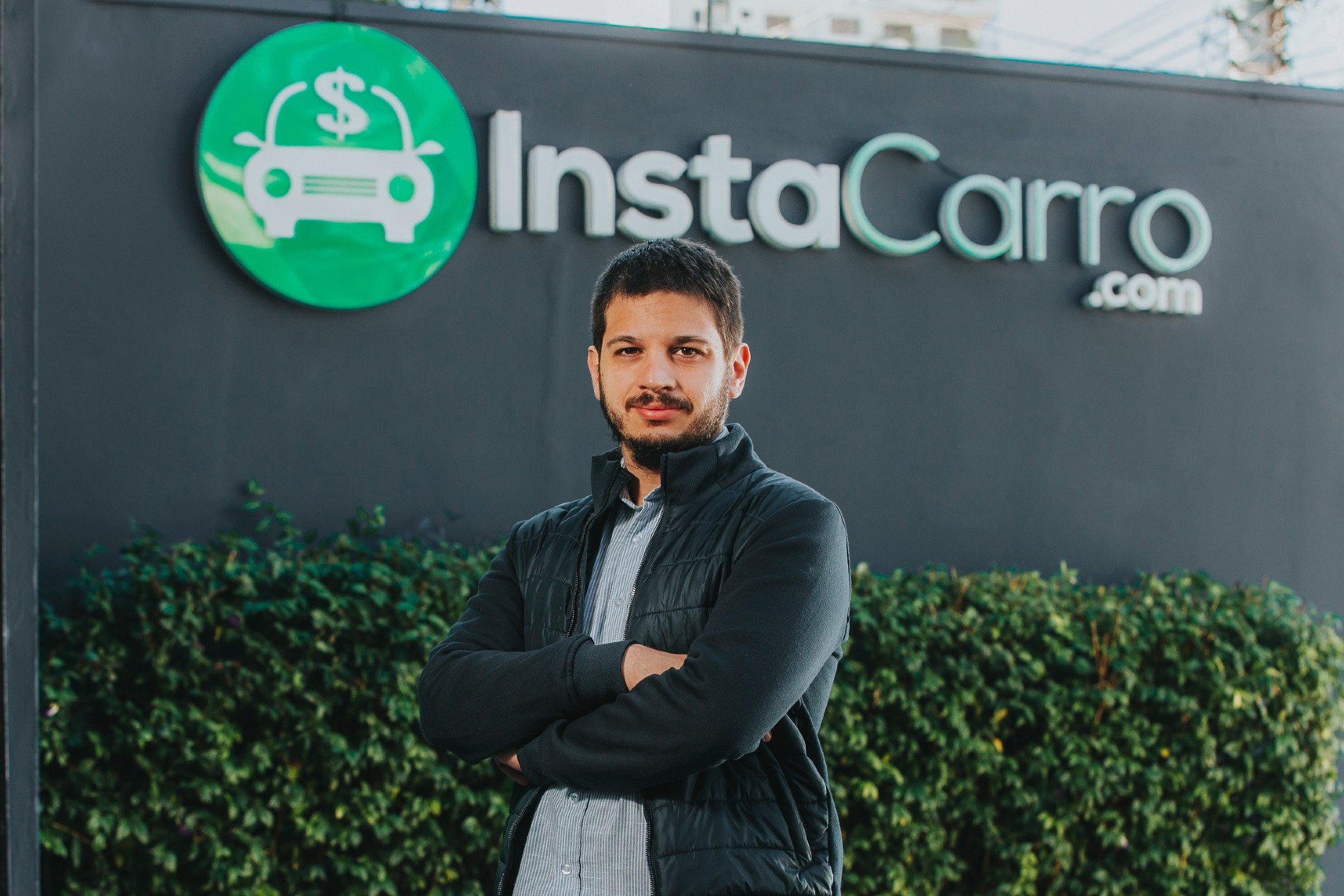RIO DE JANEIRO, BRAZIL – InstaCarro, a startup that buys and sells used cars online, is looking to capitalize on the fact that consumers are more likely to buy cars digitally and increase their investment in technology.
InstaCarro was founded in 2015 by Argentine entrepreneur Luca Cafici in the city of São Paulo with the aim of brokering the sale of used cars from private individuals to dealers throughout the country.

Using an “online auction,” the startup is able to solicit offers to buy vehicles from customers within a few hours, thus obtaining good prices for the customer. For dealers, the main advantage of the model is that they can access without charge the vehicle base of the start-up, which inspects the vehicles and guarantees delivery.
Since its inception, the company has turned over more than R$1 billion in sales transactions. In early 2020, the company invested in a model of container stores spread throughout the city so that customers can have more contact with the brand and bring their cars for inspection. When the pandemic broke out in March, forcing people to stay home longer, the startup had to revise its plans and digitize its processes as much as possible
The company’s new vision, transformed by the Covid-19 pandemic, comes with a cash infusion from investors, who injected R$115 million into the company in a Series B round, announced Wednesday (4).
Led by U.S. funds J Ventures, FJ Labs, and Rise Capital, Spanish venture capitalists All Iron Ventures and Big Sur also participated in the round. The last investment InstaCarro received was in 2017, when the company raised US$22.5 million in Series A funding, which was expanded by another US$7.5 million the following year, according to the Crunchbase database. The startup planned to use the funds to improve its platform and expand the company.
A little more than three years later, the company’s plans are still focused on improving the technology for buying and selling cars, but with an eye on new consumer needs completely changed by the healthcare crisis.
“Our idea was to increase the number of physical points of sale and control, but because of the crisis, we had to change the strategy,” says Luca Cafici, CEO of InstaCarro. “We have developed a complete service operation at the customer’s home. We go there, take pictures of the vehicle, inspect it and send the winch truck to remove it.”
InstaCarro will now invest in technology to make the buying and selling process 100% digital. “This whole remote operation requires an investment in technology products because before the pandemic, this process was done one-on-one, and communication with the customer was easier,” Cafici says. “The whole digital experience will be part of our investment.” But physical stores, which make up the other half of the startup’s business, will also focus after Series B.
The company is expected to expand aggressively into other cities in Brazil. Since its inception in 2015, InstaCarro has operated exclusively in São Paulo (SP) but is expected to reach eight other Brazilian metropolises by the end of this year: Rio de Janeiro (RJ), Belo Horizonte (MG), Goiânia (GO), Curitiba (PR), Santos (SP), Campinas (SP), Brasília (DF) and Joinville (SC). “We want to transfer the successful model of São Paulo to the rest of the country. Of course, Brazil is heterogeneous, and some adjustments will be necessary, but the focus will always be on providing the best experience to the customer,” says the CEO.
The increased geographic coverage by the end of the year and the expansion of sales and service channels will serve to take advantage of the favorable winds in the sector in which InstaCarro operates, according to Cafici. “It’s crazy to think that used car prices are going up. In general, there is always a drop in value,” he says. “With the closing of factories and the lack of components due to the pandemic, there aren’t as many new cars to buy, and people have opted for used or semi-new cars.”

